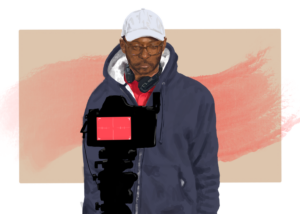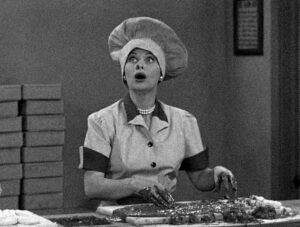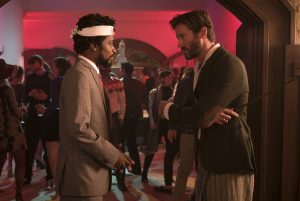Everything seems a little tidier in retrospect, the visceral immediacy of a moment a little muted in its distance from the present.
The moment I’m thinking about occurred last summer, when I was 2,600 meters in the air and clinging to a rock face, attempting to convince myself aloud that I wasn’t going to die. In hindsight, it doesn’t seem like my demise could have been that likely, but the combination of a strong fear of heights and being whipped around by cold Alpine winds wasn’t doing a whole lot for my anxiety at the time.
Seven days into my solo trek around the mountain range surrounding Mont Blanc, the second-highest peak in Europe, I was filled with a primal fear that I’d never before felt in my fairly sheltered existence. But I’d also never felt freer, or more alive. Everything hit harder, the intensity of my new daily existence making ecstasy an almost mundane notion. I’m not exaggerating when I say that it was the best experience of my life.
I’m recounting my story now, almost six months after the fact, because this year’s slate of Oscar nominations has excluded the adapted story of another lone female hiker, Cheryl Strayed, in Wild. While Reese Witherspoon and Laura Dern scored nominations for their performances, the film was ignored in all other categories.
It seems that every year the Academy of Motion Pictures Arts and Sciences fails to recognize at least one highly deserving candidate that falls outside of its narrow worldview, so the omission didn’t really surprise me. The snub of Selma’s director, Ava Duvernay, is yet another oversight that has received media attention, and deservedly so; the rejection of what would have been the first black woman nominated for Best Director seems especially unjust, particularly because her film received a Best Picture nomination.
I try not to get too angry about these omissions, since it’s pretty much a given that the Academy doesn’t always make the best or fairest choices (to point out just one glaring example, Alfred Hitchcock never won Best Director). Nevertheless, those choices are still important, because they validate certain stories over others and increase their visibility. Even in an age when an aggregate of easily accessible information determines our consumer choices, that traditional stamp of approval still has significant weight.
No matter how much people dismiss awards shows and the entertainment industry as frivolous—especially at Georgetown, where business and politics undeniably trump the arts as areas of focus—they determine the narratives that define our world. The ability to see ourselves in those narratives is an often underrated manifestation of authority. After all, visibility is power.
Just like the elite groups that govern the worlds of business and politics, the Academy is predominantly composed of old white men who dictate what stories matter and what voices should rise above the rest. It’s not surprising that the storytellers they choose to validate mostly resemble them; all acting nominees this year are white, while all directors and screenwriter nominees are men. This is a trend visible not only in Hollywood but also in the workplace, where hiring practices are often determined on the basis of “cultural matching,” as a 2012 case study by thed American Sociological Review found. The challenge, then, is getting the most powerful and visible people to resemble the rest of the world.
I’m hardly the first person to point this out. What’s more, I don’t have a solution to this problem. I don’t know how we can fix this broken system of narrative authority that reflects a wider culture of entrenched racism and sexism, except perhaps establishing some kind of quota that promotes diversity within the Academy’s membership or, barring that, killing off all the old white men.
All I can do, realistically, is add my voice to the chorus. Even if we can’t immediately alter this kind of power structure, we can still train ourselves to detect the bias that permeates this industry. Even if the stories we love don’t receive the attention we feel they deserve, we can still celebrate their existence. Most significantly, we can license ourselves to tell our own stories and fight to make them heard.
Wild is an important story to me because its focus is a woman on a quest, answering to no one but herself. When I read Strayed’s memoir, I was inspired to take a solitary trek of my own and felt more confident about that choice because of this story’s power. Like Tracks, a lesser-known memoir-turned-film about a woman who walked over 1,700 miles across the Australian desert, or the journalism of Vanessa Veselka, a former hitchhiker who wrote a spectacular essay about female road narratives, that story provided me with a role model that validated my own desires.
When I was on the trail, I frequently met people who were shocked at seeing a lone female hiker. In their eyes, I invited trouble. Though some called me brave, many simply raised their eyebrows and dismissed me as deluded. Lone male hikers were a frequent sight, validated by a strong legacy of male quest narratives. I, on the other hand, was an anomaly. It’s high time for that to change.





